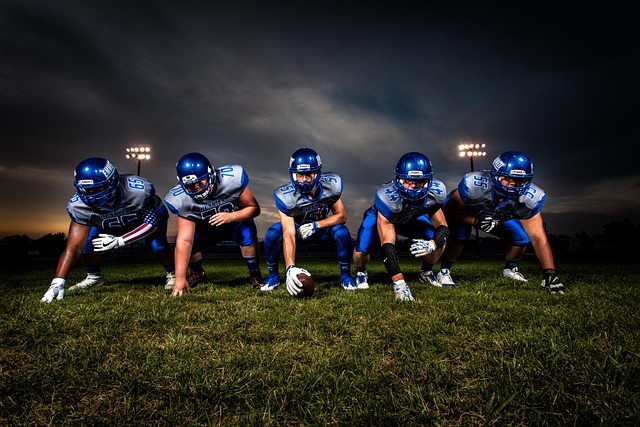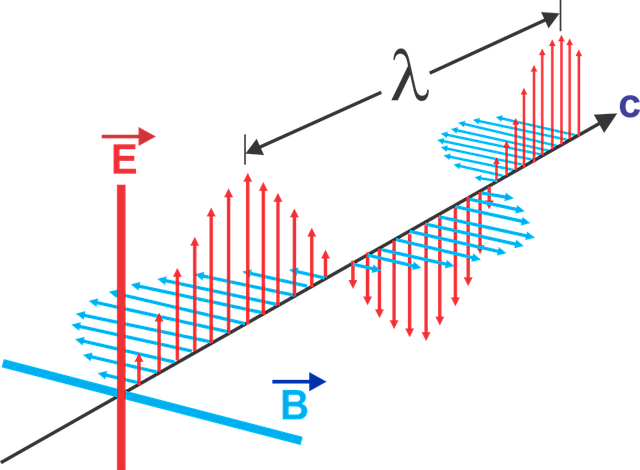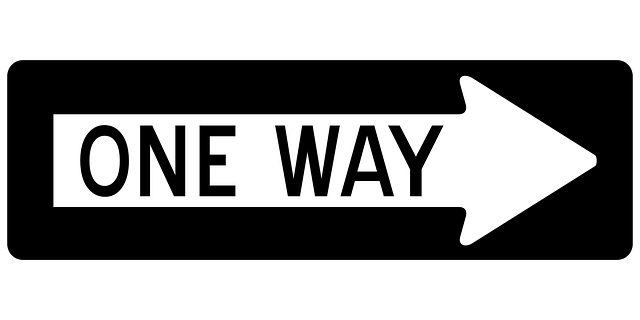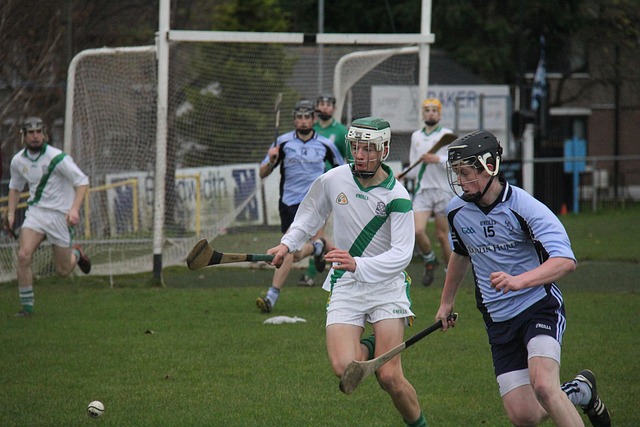College baseball teams prepare rigorously for the preseason by assessing player fitness, skills, and team chemistry through strategic training programs, advanced analytics, and team-building exercises. This comprehensive approach focuses on maximizing individual potential while fostering unity, effective communication, and in-game strategies. Intense pre-season and ongoing in-season preparation ensure athletes peak physically and mentally, leading to optimal team performance throughout the competitive college baseball season.
As the baseball season approaches, college teams across the country are in full swing with their pre-season preparations. This comprehensive guide explores the key components that contribute to a successful campaign. From assessing player fitness and skills to crafting strategic plans and building strong team chemistry, each aspect lays the foundation for on-field excellence. We delve into in-season adjustments, highlighting the importance of fine-tuning and adapting to challenges, ensuring teams are ready to compete at their highest level.
- Assessing Player Fitness and Skills: Laying the Foundation for Success
- Team Strategy and Tactics: Crafting a Competitive Edge
- Building Team Chemistry: Fostering Unity and Communication
- In-Season Preparation: Fine-Tuning and Adapting to Challenges
Assessing Player Fitness and Skills: Laying the Foundation for Success

Assessing player fitness and skills is a crucial step in preparing for college baseball’s preseason. Coaches need to evaluate each athlete’s strength, speed, agility, and specific baseball abilities like hitting, pitching, and fielding. This comprehensive assessment helps identify strengths and weaknesses, enabling coaches to tailor training programs that maximize individual potential. By focusing on foundational skills, players can build a solid base for the upcoming season.
During this phase, coaches often use various fitness tests and skill demonstrations to gauge athletes’ readiness. These assessments not only reveal physical capabilities but also provide insights into mental preparation and approach. With this information, coaching staff can design practices that target areas needing improvement, ensuring players are not only fit but also adept at executing the game’s demands.
Team Strategy and Tactics: Crafting a Competitive Edge

In the competitive landscape of college baseball, strategic preparation is key to achieving a competitive edge. During pre-season, Ducks baseball focuses on refining team tactics that leverage each player’s strengths while mitigating weaknesses. Coaches and players work collaboratively to design innovative strategies tailored to their opponents’ tendencies, utilizing advanced analytics and scouting reports to gain insights into potential match-ups.
This strategic approach extends beyond individual skills, encompassing in-game decision making, defensive formations, and offensive schemes. By meticulously crafting these tactics, the Ducks aim to create unexpected advantages, disrupt opposition playbooks, and ultimately secure victories. Through rigorous practice sessions and simulated game scenarios, the team hones their collective abilities, fostering a cohesive unit ready to face the rigors of the upcoming college baseball season.
Building Team Chemistry: Fostering Unity and Communication

In the lead-up to the college baseball season, building team chemistry is paramount for any successful campaign. This involves fostering unity and communication among players, coaches, and support staff. During pre-season preparation, teams often engage in icebreakers and team-building activities designed to encourage camaraderie and mutual understanding. These exercises help players get to know one another on a personal level, breaking down barriers and fostering an environment where everyone feels valued and heard.
Effective communication is crucial for on-field success as well. Players must learn to listen actively to coaches’ strategies and feedback, and coaches need to be open to player input. Regular team meetings, individual check-ins, and clear channels of communication ensure that everyone is aligned with the team’s goals and objectives. This cohesive approach translates into better performance during games, as players are more likely to execute plays confidently and cohesively when they feel connected to their teammates.
In-Season Preparation: Fine-Tuning and Adapting to Challenges

As the college baseball season approaches, pre-season preparation is a critical period for athletes to fine-tune their skills and prepare for the rigors ahead. This includes intense training sessions focused on both physical and mental conditioning. Athletes engage in dynamic stretching, strength and conditioning exercises tailored to enhance power and agility, and targeted practice drills to sharpen hitting, pitching, and fielding abilities. The goal is to ensure each player enters the season at their peak performance level.
In-season preparation goes beyond just physical training. It involves adapting to challenges that arise during competitive play. Coaches and players work together to analyze game footage, identify areas for improvement, and make necessary adjustments in strategies and techniques. This continuous learning and adaptation process is crucial in staying ahead of the competition. By fine-tuning skills and quickly adjusting to new situations, college baseball teams can maximize their potential and perform at their best throughout the season.














